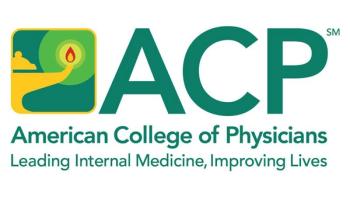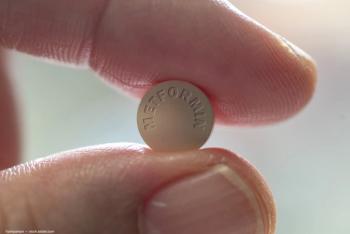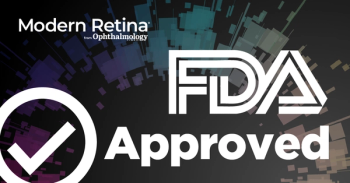
Geographic atrophy survey reveals heavy emotional burden, decreased independence for patients
Apellis Pharmaceuticals releases results of their Geographic Atrophy Insights Survey (GAINS), revealing a large emotional toll and significant decrease in independence for patients with geographic atrophy.
Last week, Apellis Pharmaceuticals, global biopharmaceutical company, announced results from a global study, which revealed an emotional burden and decrease in independence in patients with geographic atrophy (GA). GA is a leading cause of blindness—over 5 million patients worldwide and 1 million in the United States are living with GA—with no FDA-approved therapy.
“For people living with GA, the steep emotional burden and the devastating impact on independence caused by vision loss are far too often overlooked due to the absence of treatment,” said Nancy Holekamp, MD, director of retina services at the Pepose Vision Institute, St. Louis, Missouri. “This survey provides important insights that will hopefully encourage early and ongoing discussions between patients and their ophthalmologist about managing both the physical and emotional outcomes of this disease.”
203 patients participated in The Geographic Atrophy Insights Survey (GAINS), conducted by The Harris Poll. Out of that pool, 68% of patients with GA reported that their independence and quality of life is worse than expected following their visual decline. 70% of patients require a caregiver for support, and a majority reported feeling negatively affected by the disease during daily activities such as reading (96%), driving (95%), and traveling (88%).
The emotional toll is also substantial; patients reported feeling anxious (46%), powerless (39%), and frustrated (33%). 35% of respondents admit to withdrawing from their social lives due to GA.
“Quality of life is slipping away much faster than anticipated for an overwhelming number of people with GA, so it is important for patients to know they are not alone. There is a strong community of GA patients around the world who are navigating these same emotional hardships,” said Stacy Pagos Haller, president and chief executive officer of the BrightFocus Foundation. “Our hope is that these results spark a public dialogue about the heavy toll of GA on patients’ wellbeing and encourage people to actively advocate for their eye health.”
GAINS also revealed an educational gap: 76% of respondents admitted that they attributed their vision loss to a natural part of aging before their GA diagnosis. Patients expressed a desire to learn more about the disease, too. 91% of participants want to be empowered with more information and options, so they can take control over their diagnosis.
“We conducted this first-of-its-kind survey to better understand the profound social and emotional impact of GA beyond visual decline,” said Federico Grossi, MD, PhD, chief medical officer at Apellis. “There is a meaningful opportunity to empower and support people living with GA, and we remain committed to ensuring the patient voice is represented in our work every step of the way.”
About the Geographic Atrophy Insights Survey (GAINS)
The global Geographic Atrophy Insights Survey (GAINS) was sponsored by Apellis and conducted by The Harris Poll between October 12 to December 10, 2021. To accommodate visually impaired respondents, the survey was conducted online and via the telephone among 203 participants aged 60 or over (mean age 70 years) residing in the United States, United Kingdom, France, Germany, Italy, Netherlands, Sweden, Canada, and Australia who self-reported that they have been diagnosed with age-related macular degeneration (AMD) and have dry AMD in at least one of their eyes. They must also have indicated that they have advanced atrophic age-related macular degeneration or advanced atrophic AMD, advanced/late/late-stage dry age-related macular degeneration or advanced dry AMD, or geographic atrophy (GA) in one or both of their eyes. Included patients must have been currently experiencing at least 3 GA symptoms and currently do/used to do/or have been suggested by an eye care professional but have not done at least one of the following: Take a high-dose formulation of antioxidant vitamins and minerals, stop smoking, maintain a healthy weight and exercise regularly, choose a healthy diet, manage other medical conditions, have check-ups of the retina regularly, or wear sunglasses with UV protection. Included patients must not have been diagnosed with glaucoma, Stargardt disease, or dementia, or be receiving regular injections into the affected eye every 4 to 6 weeks.
About Geographic Atrophy (GA)
Geographic atrophy (GA) is an advanced form of age-related macular degeneration (AMD) and a leading cause of blindness that impacts more than 5 million people worldwide, including one million people in the United States.1,2 This progressive disease can severely impair visual function, independence, and quality of life as it takes on average 2.5 years for GA lesions to encroach the fovea, which is responsible for central vision.3 GA is caused by destruction of retinal cells through irreversible lesion growth that is driven by excessive complement activation.4 There are currently no approved treatments for GA.
About The Harris Poll
Founded in 1956, The Harris Poll is one of the longest running surveys in the U.S. tracking public opinion, motivations, and social sentiments. Every year, we poll millions of people on the trends that are shaping our modern world.
About Apellis
Apellis Pharmaceuticals, Inc. is a global biopharmaceutical company that is committed to leveraging courageous science, creativity, and compassion to deliver life-changing therapies. Leaders in complement, we ushered in the first new class of complement medicine in 15 years with the approval of the first and only targeted C3 therapy. We are advancing this science to continually develop transformative medicines for people living with rare, retinal, and neurological diseases. For more information, please visit
Newsletter
Keep your retina practice on the forefront—subscribe for expert analysis and emerging trends in retinal disease management.




























